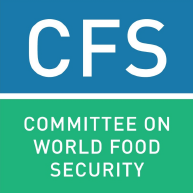




- Based on the Principles for Responsible Investment in Agriculture and Food Systems
- Contribute to food security and nutrition
- Contribute to sustainable and inclusive economic development and the eradication of poverty
- Foster gender equality and women’s empowerment
- Engage and empower youth
- Respect tenure of land, fisheries, and forests and access to water
- Conserve and sustainably manage natural resources, increase resilience, and reduce disaster risks
- Respect cultural heritage and traditional knowledge, and support diversity and innovation
- Promote safe and healthy agriculture and food systems
- Incorporate inclusive and transparent governance structures, processes, and grievance mechanisms
- Assess and address impacts and promote accountability




































some years later...


























What you can do!
Make your business more responsible
Buy responsibly produced food and agriculture products
Advocate to your policymakers
https://www.fao.org/cfs/policy-products/rai/how-to-make-resposinble-investments The Committee on World Food Security is a multistakeholder body that is open to all member countries of the United Nations, as well as other UN bodies, civil-society organizations, international research networks, international financial institutions, private-sector organizations and philanthropic organizations – all of whom are able to participate in debates and contribute to decisions and outputs.
The CFS endorsed the Principles for Responsible Investment in Agriculture and Food Systems in October 2014 – the first global consensus on defining how investment in agriculture and food systems can do the most good. They provide a framework that can be used in developing national policies, regulations and programmes; corporate social responsibility policies and schemes; and individual agreements or contracts. The principles also outline the roles of investors, whether governments or businesses, and smallholders.
The CFS endorsed the Principles for Responsible Investment in Agriculture and Food Systems in October 2014 – the first global consensus on defining how investment in agriculture and food systems can do the most good. They provide a framework that can be used in developing national policies, regulations and programmes; corporate social responsibility policies and schemes; and individual agreements or contracts. The principles also outline the roles of investors, whether governments or businesses, and smallholders.






